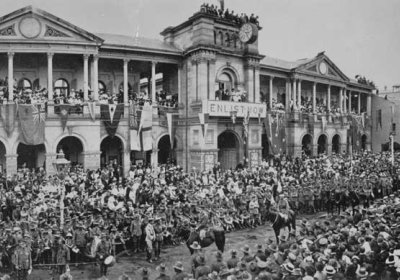In 1914, as World War I began, European and British workers willingly signed up to what amounted to ritualistic class suicide in a bloody battle over imperialist spoils, while 420,000 Australian working men were sent to the Western Front and the Middle East, including the slaughter at Gallipoli, writes James Wyner.
Australian and New Zealand Army Corps (ANZAC)
Today — ANZAC Day — is the climax of the orgy of nationalism and militarism we've been subjected to in recent times, ostensibly to remember the ordinary people who responded to the lies of the government by fighting and dying in an unjust war.
Of course progressive people have sympathy for the soldiers who died as well as the soldiers who didn't die but nevertheless witnessed or experienced terrible things.
The truth about Anzac Day is that it is as much about denial as it is about remembrance. It is a denial that functions for both sides of the original conflict.
Some things should never be forgotten, and some things should never be forgiven. Both apply to the mass slaughter of ordinary people in World War I, including Gallipoli.







